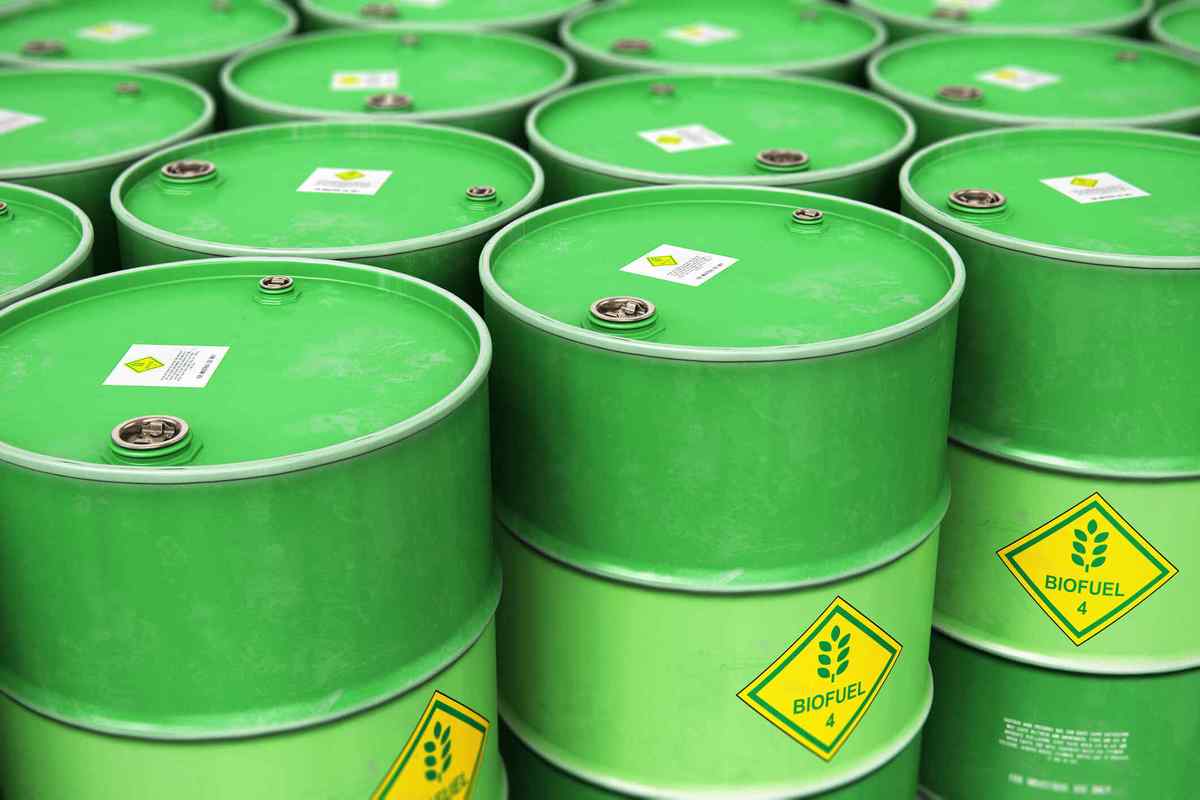Investigation launched against fraud biofuels circulating in Portuguese market – report
The biofuels market in Portugal will be subject to inspection due to suspicion of “fraud in obtaining green certificates,” Portuguese media company Diário de Notícias (DN) reported, citing data from the country’s National Entity for the Energy Sector (ENSE).
 PHOTO: Biofuel barrels. Getty Images
PHOTO: Biofuel barrels. Getty Images
DN reported that Portugal's imports of biofuel and biofuel feedstocks have surged by 20 times in the last five years. There are suspicions that the imported biofuel feedstocks could be relabelled palm oil, falsely represented as used cooking oil (UCO), with a significant 60% originating from China.
The extension of fraudulent products in the marine biofuels market in Portugal was not specified by DN.
“The European Commission has also expressed its intention to take this complaint very seriously,” DN cited ENSE as saying. Relabelled palm oil originating from Indonesia is entering the European Union (EU) via China to avoid taxation, ENSE added.
ENSE said it has collaborated with the European Anti-Fraud Office (OLAF) to identify the suspicious issuance and circulation of false declarations of raw materials and their sustainability reports that directly violate the EU's Renewable Energy Directive (RED II).
Blending falsely labelled UCO, whether imported or locally purchased, with petroleum products to produce biofuel blends presents a significant challenge for fuel testing labs to confirm if the fuel aligns with sustainability criteria.
Only biofuel feedstocks mixed with petroleum products by Portuguese refineries, like Galp and Prio, undergo regular laboratory tests, said Jaime Braga, general secretary of the Association of Portuguese Producers of Biofuels (APPB). “Others simply have to present to the authorities a sustainability certificate issued in their countries of origin certifying that the product is compliant,” he added.
PRIO Energy has been supplying biofuel blends for shipping. These blends are typically derived from UCO and other advanced feedstocks. The company informed ENGINE last year that it does not use any crop-based feedstock for biofuel blending.
According to data from Portugal’s General Directorate of Energy and Geology (DGEG), the country produced more than 300,000 mt of biofuels between 2017 and 2020. However, production has since decreased, with figures reported at 274,406 mt in 2022 by DN.
During the same time, biofuel imports soared almost 20 times, rising from 4,171 mt to 84,892 mt in 2022. By the third quarter of 2023, biofuel production in Portugal fell to 196,000 mt while imports stood at 103,000 mt, DN reported.
Last year, countries including Germany, Ireland, and Italy announced investigations regarding suspected fraud in the import of cooking oils used to produce biodiesel, mostly originating from China.
By Aparupa Mazumder
Please get in touch with comments or additional info to news@engine.online






